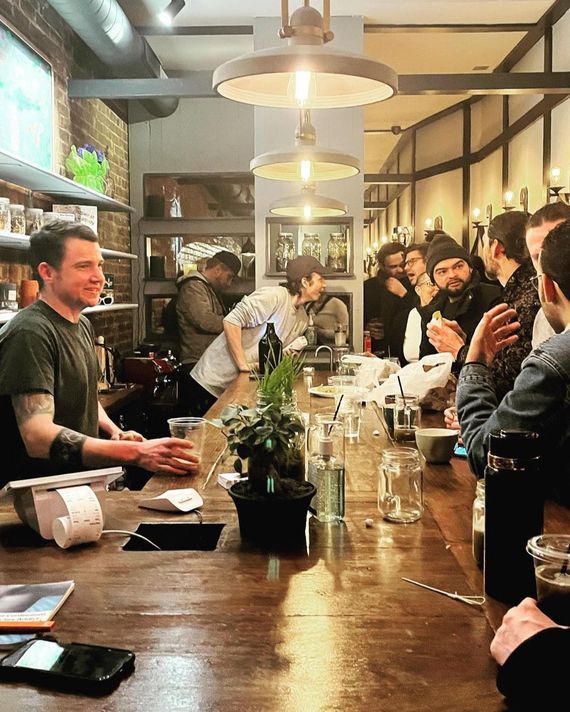Tobly McSmith has had his kava bar Here & Now shuttered by inspectors from the Department of Health and Mental Hygiene twice in the year and a half since it first opened on Allen and Bowery. “We’ve been scared of everybody who walks in,” McSmith says. In addition to pour-over coffee and espresso and pots of tea, McSmith sells kava and kratom teas that his employees brew themselves, both plant-derived substances that his clientele consider natural options for anxiety and pain relief and the health agency deems “poisonous,” “injurious to health,” and “unsafe.” This difference has led to the bureaucratic tug of war plaguing his business — from DOH violations for selling kava to a cease-and-desist letter to closure orders, two hearings, a trial, and a denial of his application to renew his food service establishment permit. He’s not alone — the city’s other kava bar owners are by now very familiar with the bright yellow signage announcing a shutdown: “Closed by order of the Commissions of Health and Mental Hygiene.”
The city’s quiet kava crackdown started in November 2022, when the Health Department issued a summons to KavaSutra, a kava bar on First Street. A couple of months later, KavaSutra got hit again at its 10th Street location, when the department “embargoed” its kava products, according to a lawsuit KavaSutra’s owners later filed against New York City, Mayor Eric Adams, and the Health Department and its commissioner Ashwin Vasa. Then last spring, the agency shut down two kava bars in Williamsburg: Ka-Vá Kava Bar (the space is now a cannabis club) and Kava Social, which never reopened publicly but has operated as a private club since. It’s a fairly existential moment in the New York kava and kratom scene, but the saga has gone largely unnoticed by the wider public. This may be because it’s a small-ish market to begin with, a blip compared to the unlicensed cannabis market that has taken over the city’s retail landscape and baffled the city, state, and law enforcement officials tasked with regulating it. The client base for kava and kratom bars also includes a lot of recovering addicts, who are both used to being overlooked and perhaps would prefer to avoid any extra attention. (“I would say a good 60 to 65 percent of our customers are sober,” McSmith says.)
